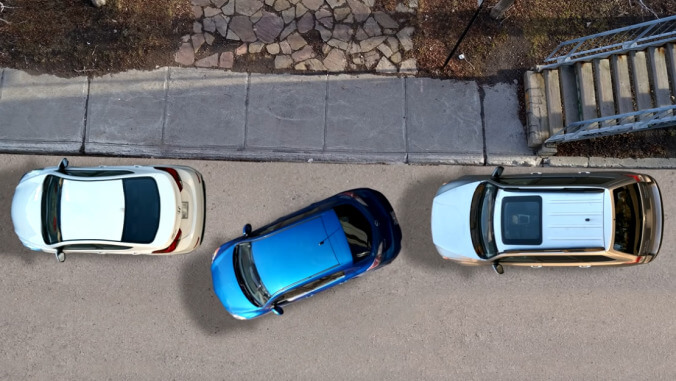Read this: An exploration of why Twitter saw red over a display of excellent parallel parking
P.E. Moskowitz reached out to some of the accounts that sent angry messages in response to their tweet

Writer P.E. Moskowitz felt proud of a solid parallel parking job and tweeted photo evidence of their accomplishment last month. In a different society, that would be the end of the story. Instead—and despite Moskowitz following up to assure everyone that “both cars on either side of me got out fine”—Twitter became really mad at this display of advanced parking skills. Wanting to understand what possesses people to reply to such an innocuous tweet with stuff like “You are an objectively bad person,” Moskowitz spoke to their detractors and wrote about why everyone’s so angry about everything on the internet in an article for New York Magazine.
The piece describes how Moskowitz’s parking tweet has generated “about 4,000" replies containing messages that called them “a shitty human being or an ableist,” threatened to fight them or pop their tires, and, in one instance, “created an SAT-style geometry diagram to prove, based on the dimensions and angles seen in the photograph, that my parking job was mathematically impossible.”
Understandably confused by how an inoffensive picture of a well-executed parking maneuver that we know didn’t inconvenience any other drivers could piss off so many people, Moskowitz talked to colleagues, experts, and one of the angry commenters to try to figure out what inspired the response. Writer Charlotte Shane suggests the photo had so much reach because “Twitter wants … us to be looking at a tweet that makes us so mad that we’re going to spend all day tweeting about it.”
Moskowitz describes this as an example of context collapse, which sees algorithms force “disparate audiences that may not want to be in the same place together IRL” into interacting with one another virtually—something that generally makes people angry. This explanation bears out in what Moskowitz hears from someone named Zac, “who suggested I should be in jail for my parking job.” Zac says he was basically just trying to make his friends laugh by writing the tweet.

 Keep scrolling for more great stories from A.V. Club.
Keep scrolling for more great stories from A.V. Club.